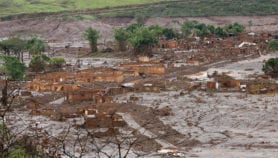Send to a friend
The details you provide on this page will not be used to send unsolicited email, and will not be sold to a 3rd party. See privacy policy.
[NAIROBI] Sediment cores drilled from one of East Africa’s Great Lakes show that rainfall in the region is highly sensitive to climate changes in the Northern Hemisphere.
Analysis of the cores — collected from the bottom of Lake Tanganyika in East Africa’s Rift Valley and dating back 60,000 years — suggest that rainfall is sensitive to changes in winter winds in northern Asia and sea surface temperatures in the Indian Ocean.
The research was published in Science last week (11 September).
The time span covered by the mud cores, which go past the last ice age, may help scientists understand how tropical Africa will respond to global warming in the future, said lead author, geological scientist Jessica Tierney, from the US-based Brown University, in a press release.
The researchers measured past precipitation by monitoring the fatty acid compounds found in plant leaf waxes in the lakebed sediments.
Results were compared with other research from Lake Malawi and match results from soil analysis of caves in China.
The results disprove earlier assumptions that cloud cover, rainfall and temperature changes matched in the Inter-Tropical Convergence Zone, a weather system which migrates across the East African region.
The results also show that some of the swings in rainfall occurred within only 300 years, suggesting that rainfall patterns in the densely populated tropical African regions could react abruptly to changes caused by human-induced climate change.
The decade-long study — known as the Nyanza Project and based at the University of Arziona in the United States — involved researchers Hudson Nkotagu and Evelyn Mbede from the University of Dar es Salaam in Tanzania as well as more than 50 students from the university who received two months of training in field research.
The work was done with the help of the Tanzania Fisheries Research Institute, which operates a field station on Lake Tanganyika.
James Russell, co-author of the research and assistant professor of geological sciences at Brown University, says that East Africa and the great lakes region in particular is "a region of central importance to the global hydrologic cycle", which needs further research because it is "poorly understood".
References
Science doi 10.1126/science.1160485 (2008)













